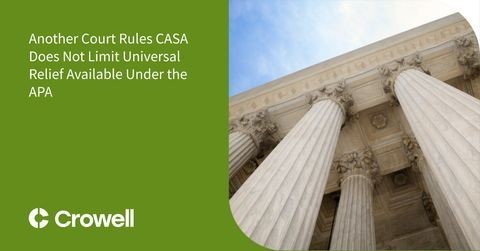The NLRB's Acting General Counsel Asserts an Unprecedented Challenge to Employee Handbook Receipt Provisions
Client Alert | 2 min read | 05.08.12
The Acting General Counsel of the National Labor Relations Board ("General Counsel") recently issued a Complaint alleging that certain employee acknowledgments, routinely included in employee handbooks, violate federal labor law. The challenged acknowledgements, set forth in the Acknowledgment of Employee Handbook used by Hyatt Hotels Corporation ("Hyatt") nationwide, are:
- "I understand my employment is 'at will;'"
- "I acknowledge that no oral or written statements or representations regarding my employment can alter my at-will employment status, except for a written statement signed by me and" one of two company executives; and
- "The sole exception to [a prior acknowledgment] is the at-will status of my employment, which can only be changed in a writing signed by me and" by one of two company executives.
The General Counsel asserts, in the Complaint issued on February 29, 2012, by the Phoenix Regional Office of the National Labor Relations Board ("Board"), that these statements are overly broad and, therefore, violate Section 8(a)(1) of the National Labor Relations Act ("NLRA"). The Complaint, based on an unfair labor practice charge filed by UNITE HERE International Union, does not allege whether the charging party represents Hyatt employees. "As part of the remedy" for the alleged unfair labor practice, the General Counsel seeks an order requiring that Hyatt "on a nationwide basis at all of its facilities rescind and cease maintaining or enforcing the alleged unlawful" acknowledgements and "either 1) furnish all current employees with inserts for" its acknowledgments "that (a) advise that the unlawful rules, policies, or requirements have been rescinded, or (b) provide language of lawful rules, policies, or requirements; or 2) publish and distribute revised . . . acknowledgements that (a) do not contain the unlawful rules, policies, or requirements, or (b) provide the language of lawful rules, policies, or requirements . . . ." The injunctive relief sought by the General Counsel is not limited to unionized Hyatt locations.
Until the Complaint in this case issued, such routine employee acknowledgments had never been questioned, even in part, by the Board or its General Counsel. The Complaint does not challenge the following employee representations, which are also set forth in the Hyatt employee handbook:
- acknowledgment of receipt of the handbook;
- agreement to comply with the handbook;
- understanding that the handbook is only a guide to the practices and policies of the company;
- acknowledgment that the policy is still in force and effect even if the company does not enforce it;
- understanding that "at will" employment means "I am free to separate my employment at any time, for any reason, and Hyatt has these same rights;" and
- understanding that "Hyatt, in its sole discretion, can change, modify or delete guidelines, rules, policies, practices and benefits in this handbook without prior notice at any time."
This Complaint may be a prelude to a new Board enforcement target: long-settled state law principles of employment at will.
We will continue to closely monitor this development, including the disposition of this Complaint.
Contacts
Insights
Client Alert | 3 min read | 01.05.26
Another Court Rules CASA Does Not Limit Universal Relief Available Under the APA
In Trump v. CASA, the Supreme Court significantly constrained the equitable authority of federal district courts to grant universal or nationwide injunctive relief, clarifying that, with specific exceptions, a federal court’s power to grant relief is limited to the parties before it. When it was issued, many bemoaned CASA’s implications for preventing government overreach.
Client Alert | 7 min read | 01.05.26
Consideration of Artificial Intelligence in Arbitration Terms of Reference
Client Alert | 4 min read | 12.31.25
Raising the Bar: New York Expands Consumer Protection Law with FAIR Business Practices Act
Client Alert | 4 min read | 12.30.25




